
GIVE THIS RAMADAN
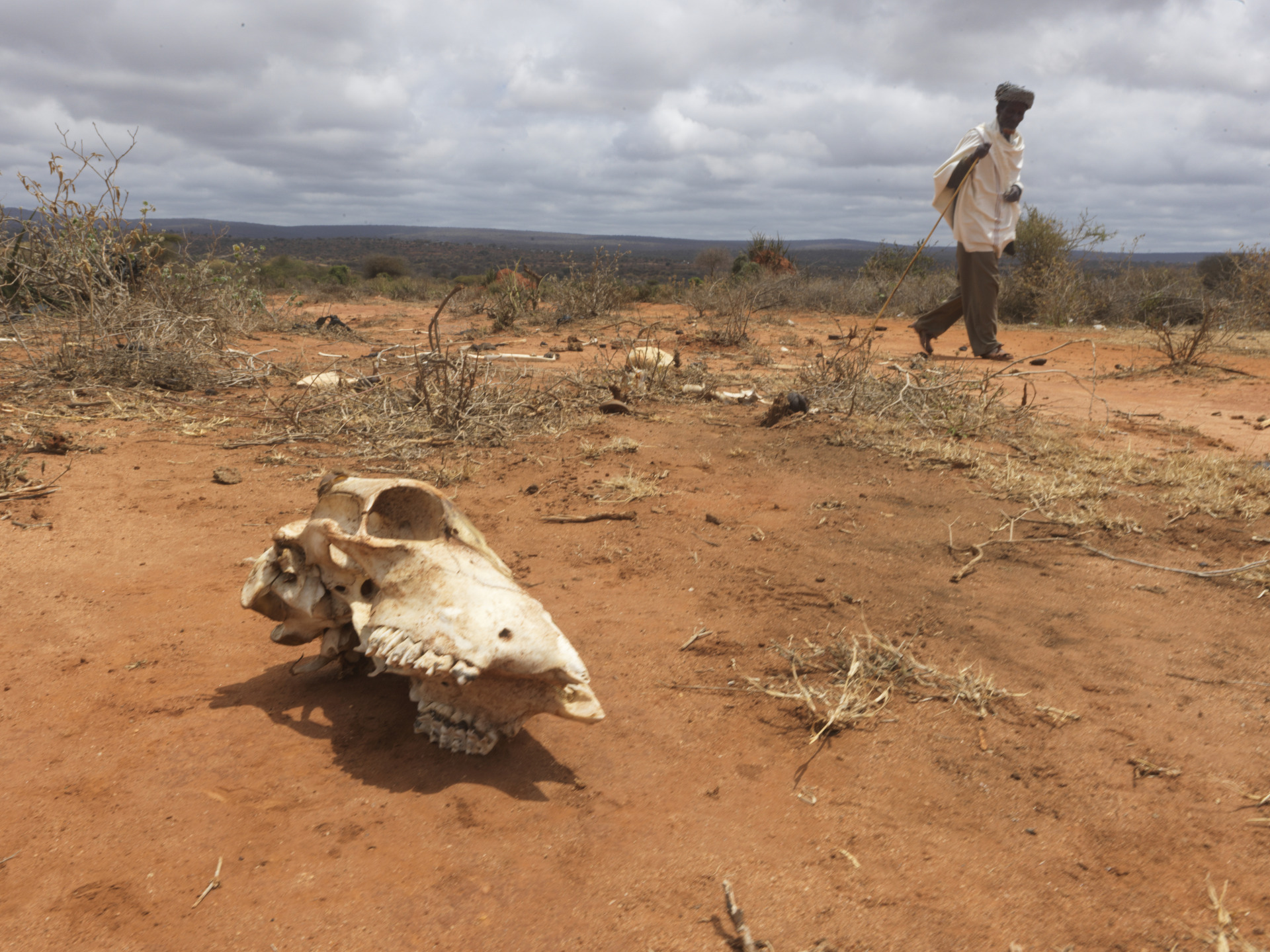
Across East Africa, swarms of desert locusts have invaded communities for the past few years. The insects devour everything in their path, and many families were unprepared for the damage to their crops. In southern Ethiopia, Darmi Doyo, a mother of five children, lost her entire harvest last year.
“It was very stressful when the locusts arrived. They ate everything that we had, and every crop that we cultivated was destroyed,” she says. “We didn’t have the power to make them go away.”
For Darmi, the locust infestation came after a year’s hard work trying to secure food for her family that was supposed to last through the dry season. But when the locusts arrived, the community had no time to protect their crops.
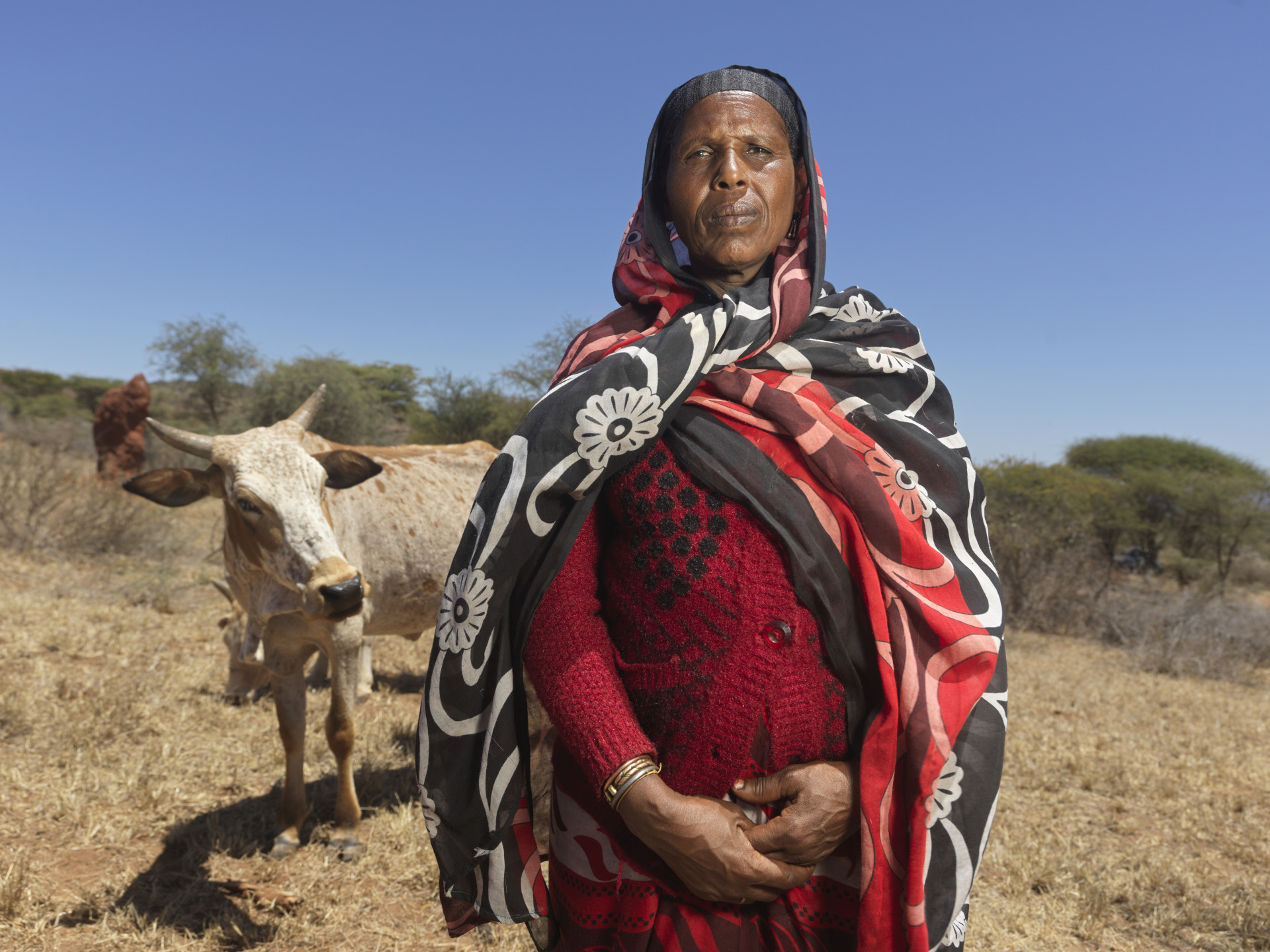
“I saw it with my own eyes, the locusts were not only in my land, but in the land all around us…They came to our village more than three times,” says Darmi, recalling her shock at seeing the insects with insatiable appetites. “They ate the leaves of the trees on top of eating the crops…they even started eating the bark of the trees after they damaged everything else.”
Darmi had already been struggling with the unforgiving droughts that made it difficult to grow crops, and the locust infestations made matters worse. Climate change – and its unpredictable and extreme weather patterns – helped make her land the perfect breeding ground for the desert locusts.
“Not only the locusts, but also the weather conditions affect our lives and our crops,” explains Darmi. “The weather conditions make us suffer a lot. We can’t predict anymore which weather will be the best for our cattle or when to cultivate our land…it changes so much.”
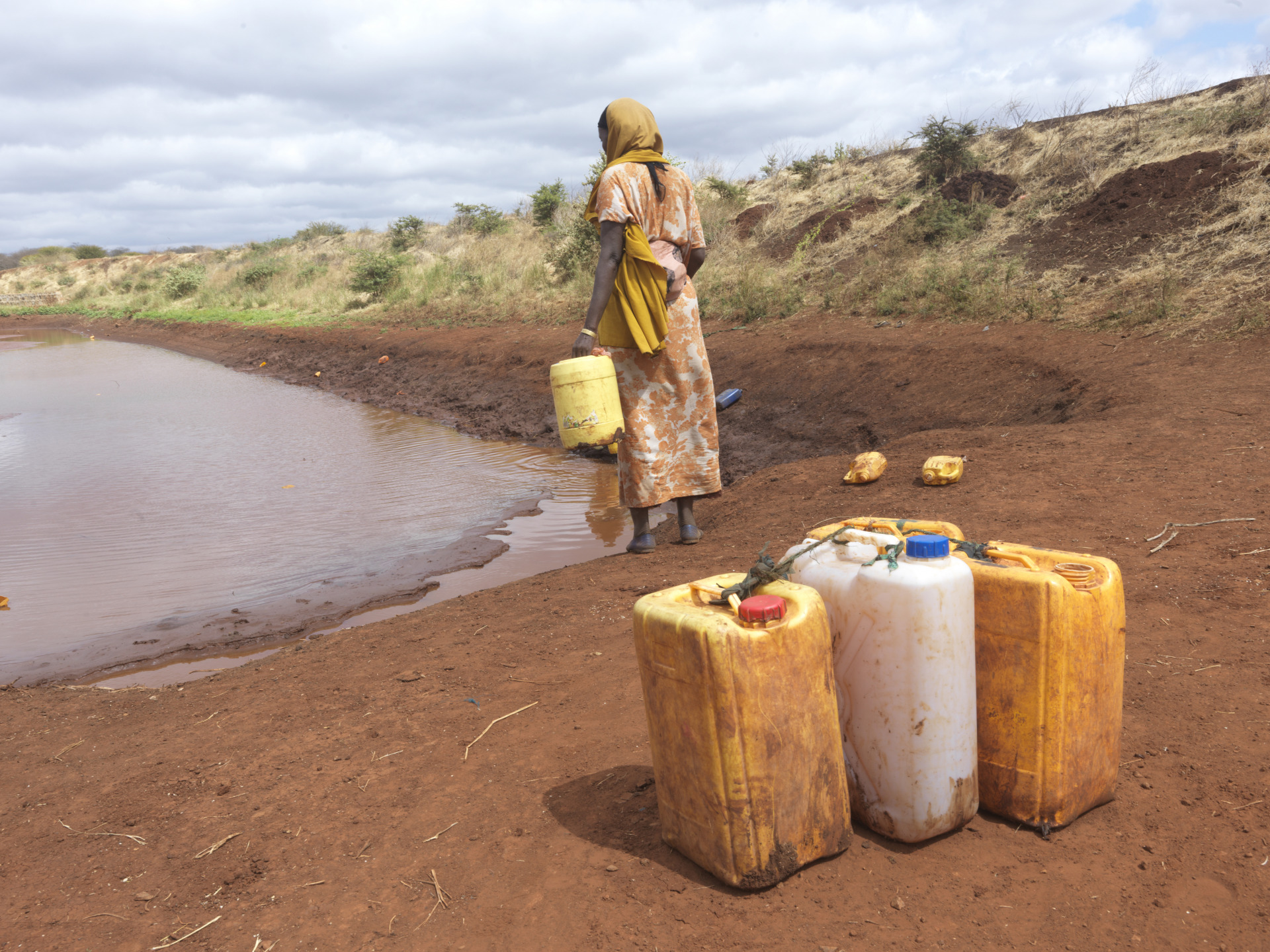
Even during the rainy seasons in the Borena region, where Darmi lives, there is less precipitation. The seasons of drought are longer and drier. Despite their best efforts, farmers are becoming frustrated, losing crop after crop to climate disasters.
“We worked hard to cultivate our land, we bought seeds and tried hard. For example, beans take two months to mature but at the end of that time, near to their maturity, the rain stopped and we couldn’t harvest anything. We keep on losing what we have.”
“We go through this so often. We eagerly wait for the maturity of the crops, but at the end of the day, the rain stops or the locusts appear for a short period of time and eat everything.”
By the time the locusts left, Darmi did not have much left to feed her five children – just a couple of cows. During the dry season that followed the infestation, they relied heavily on their cows for milk, but there wasn’t enough grass to feed the animals, so they produced very little milk.
“After the locusts destroyed our crops, we didn’t have anything to eat in our home. So, for one or two months, our children suffered from hunger,” says Darmi.
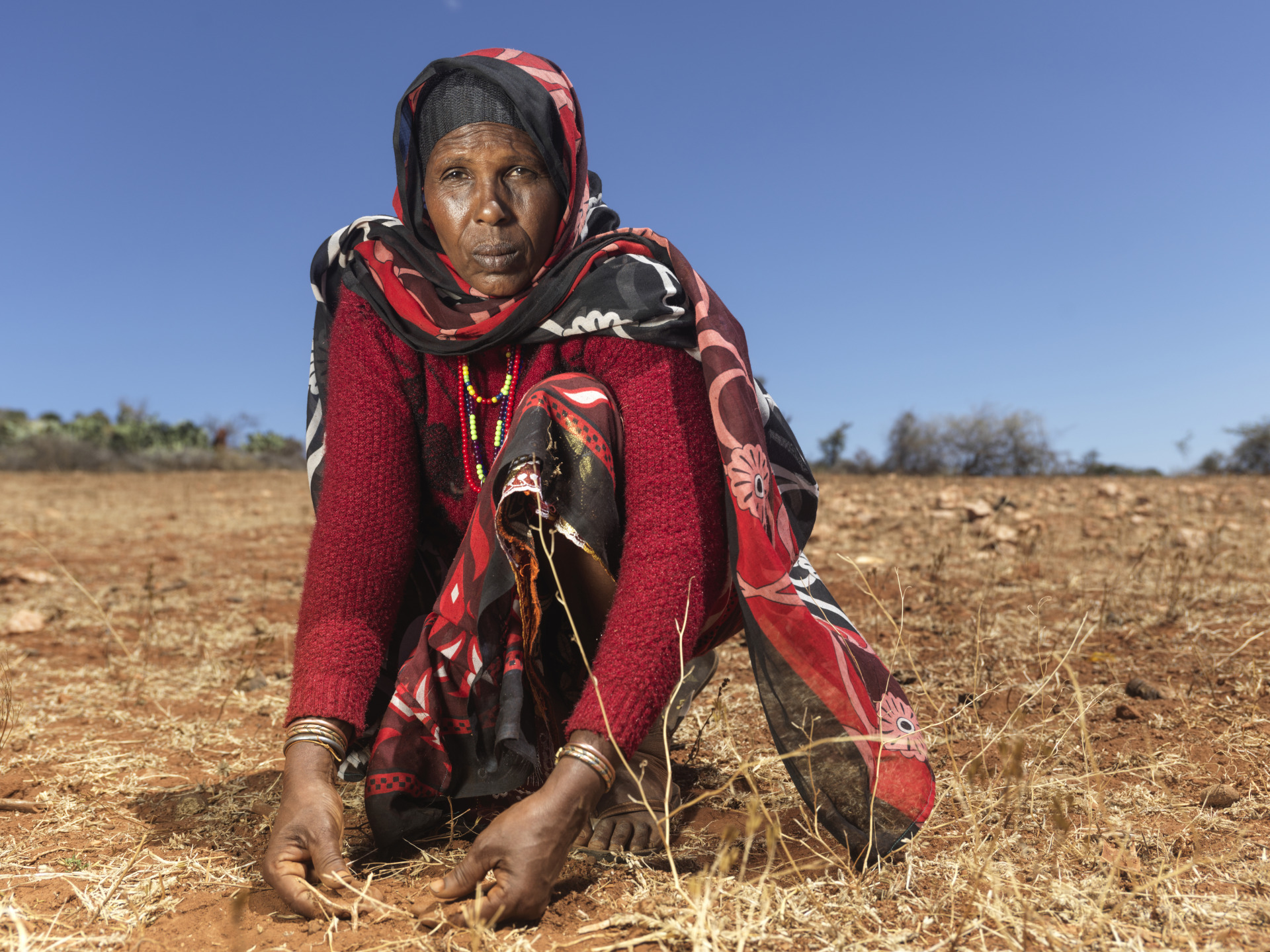
To help Darmi get back on her feet and ensure that her children had enough to eat, Action Against Hunger provided her and others in her community with emergency cash transfers. Darmi immediately used the funds she received to buy bags of grain and flour to feed her children.
“Action Against Hunger supported us with money,” explains Darmi. “I didn’t have enough means to get food, but after I received the cash, I could buy food for the house.”
Our teams in Ethiopia and around the world help families prevent hunger and malnutrition in times of crisis. Sometimes, the quickest and most effective way to help families like Darmi’s is through cash to help them buy what they need to recover and rebuild their lives after a shock.
“I say thank you to Action Against Hunger for giving us money and supporting my children during these difficult times,” says Darmi.
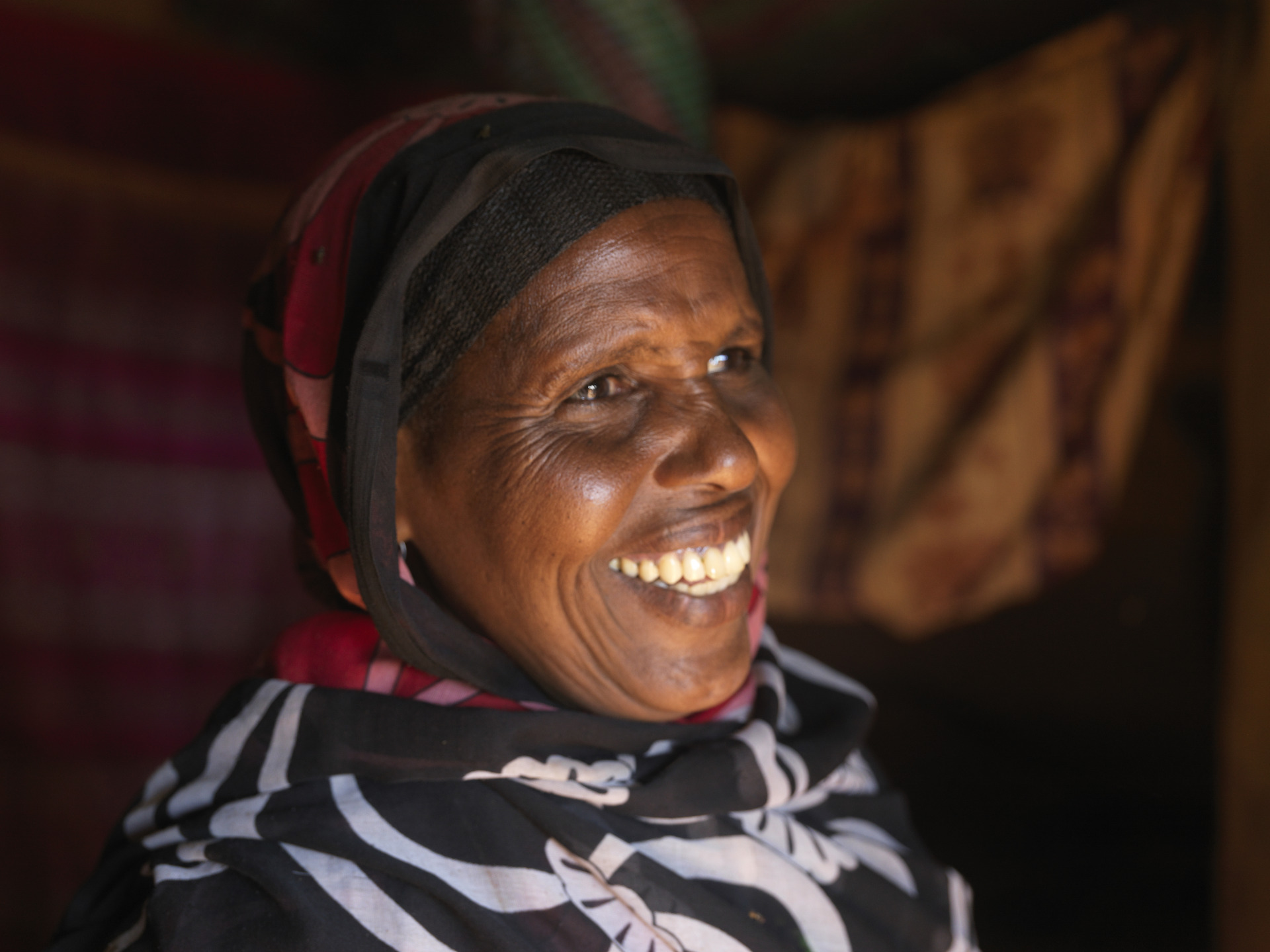
Action Against Hunger in Ethiopia
Our teams have been operating in Ethiopia since 1985, meeting urgent humanitarian and development needs across the country. In 2020 alone, we reached more than one million people across the country, including refugees, internally displaced people, and returnees, with lifesaving nutrition, water, health, food security, and protection programs. Currently, we work in the regions of Amhara, Benshangul Gumuz, Gambella, Oromia, Somali, Tigray, and the city administration of Addis Ababa.
Join our community of supporters passionate about ending world hunger.